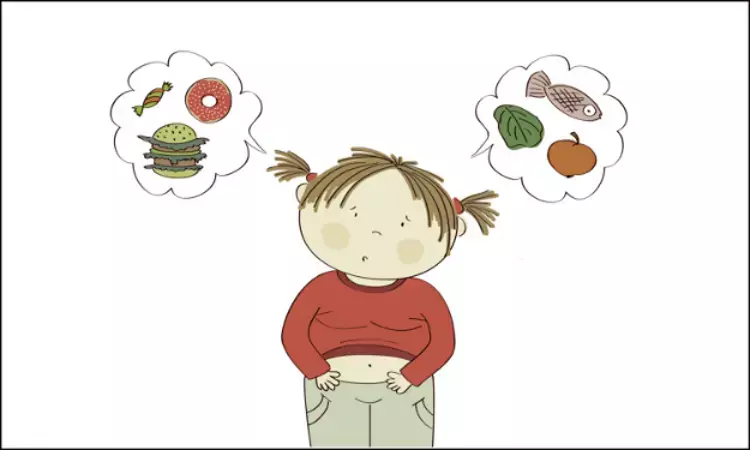- Home
- Medical news & Guidelines
- Anesthesiology
- Cardiology and CTVS
- Critical Care
- Dentistry
- Dermatology
- Diabetes and Endocrinology
- ENT
- Gastroenterology
- Medicine
- Nephrology
- Neurology
- Obstretics-Gynaecology
- Oncology
- Ophthalmology
- Orthopaedics
- Pediatrics-Neonatology
- Psychiatry
- Pulmonology
- Radiology
- Surgery
- Urology
- Laboratory Medicine
- Diet
- Nursing
- Paramedical
- Physiotherapy
- Health news
- Fact Check
- Bone Health Fact Check
- Brain Health Fact Check
- Cancer Related Fact Check
- Child Care Fact Check
- Dental and oral health fact check
- Diabetes and metabolic health fact check
- Diet and Nutrition Fact Check
- Eye and ENT Care Fact Check
- Fitness fact check
- Gut health fact check
- Heart health fact check
- Kidney health fact check
- Medical education fact check
- Men's health fact check
- Respiratory fact check
- Skin and hair care fact check
- Vaccine and Immunization fact check
- Women's health fact check
- AYUSH
- State News
- Andaman and Nicobar Islands
- Andhra Pradesh
- Arunachal Pradesh
- Assam
- Bihar
- Chandigarh
- Chattisgarh
- Dadra and Nagar Haveli
- Daman and Diu
- Delhi
- Goa
- Gujarat
- Haryana
- Himachal Pradesh
- Jammu & Kashmir
- Jharkhand
- Karnataka
- Kerala
- Ladakh
- Lakshadweep
- Madhya Pradesh
- Maharashtra
- Manipur
- Meghalaya
- Mizoram
- Nagaland
- Odisha
- Puducherry
- Punjab
- Rajasthan
- Sikkim
- Tamil Nadu
- Telangana
- Tripura
- Uttar Pradesh
- Uttrakhand
- West Bengal
- Medical Education
- Industry
Study links neonatal adiposity to higher risk of childhood obesity
 Childhood obesity
Childhood obesityHigher neonatal adiposity is significantly associated with higher overall BMI levels and an increased likelihood of overweight or obesity from ages 2 to 6 years, as revealed in a study conducted by Moore BF et al. Because various prenatal exposures may specifically influence offspring fat accretion, neonatal adiposity may be a useful surrogate endpoint for prenatal interventions aimed at reducing future childhood overweight and obesity.
The study is published in The Pediatrics
According to the authors, there is longitudinal association of neonatal adiposity (fat mass percentage) with BMI trajectories and childhood overweight and obesity mostly experienced from ages 2 to 6 years. They studied 979 children from the Healthy Start cohort. Overweight and obesity was defined as BMI levels ≥85th percentile for age and sex. Mixed-effects models were used to examine the association between neonatal fat mass percentage and BMI trajectories. They tested for effect modification by sex, race and/or ethnicity, and breastfeeding duration and also estimated the proportion of children classified as overweight or obese at specific levels of neonatal fat mass percentage (mean ± SD).
The results displayed were –
- The mean neonatal adiposity level was 9.1% ± 4.0%. Child BMI levels differed by neonatal adiposity.
- Each increase in neonatal adiposity resulted in a 0.12 higher overall BMI level between ages 2 to 6 years and this association was not modified by offspring sex, race and/or ethnicity, or breastfeeding duration.
- Increasing neonatal adiposity was associated with an increasing proportion of childhood overweight and obesity by age 5 years.
The researchers thereafter concluded that higher BMI levels in children in between ages 2-6 years can be attributed to higher neonatal adiposity.
For the full article Click on the link: https://doi.org/10.1542/peds.2020-0737
Dr. Nandita Mohan is a practicing pediatric dentist with more than 5 years of clinical work experience. Along with this, she is equally interested in keeping herself up to date about the latest developments in the field of medicine and dentistry which is the driving force for her to be in association with Medical Dialogues. She also has her name attached with many publications; both national and international. She has pursued her BDS from Rajiv Gandhi University of Health Sciences, Bangalore and later went to enter her dream specialty (MDS) in the Department of Pedodontics and Preventive Dentistry from Pt. B.D. Sharma University of Health Sciences. Through all the years of experience, her core interest in learning something new has never stopped. She can be contacted at editorial@medicaldialogues.in. Contact no. 011-43720751
Dr Kamal Kant Kohli-MBBS, DTCD- a chest specialist with more than 30 years of practice and a flair for writing clinical articles, Dr Kamal Kant Kohli joined Medical Dialogues as a Chief Editor of Medical News. Besides writing articles, as an editor, he proofreads and verifies all the medical content published on Medical Dialogues including those coming from journals, studies,medical conferences,guidelines etc. Email: drkohli@medicaldialogues.in. Contact no. 011-43720751


